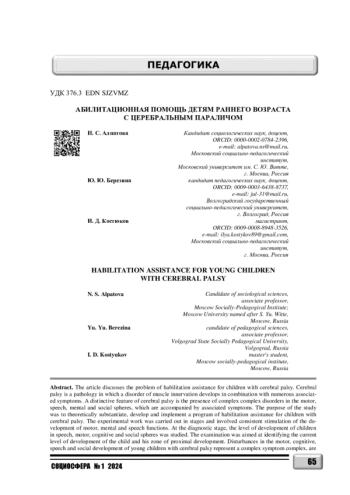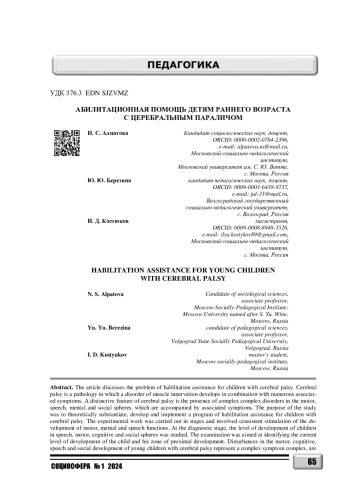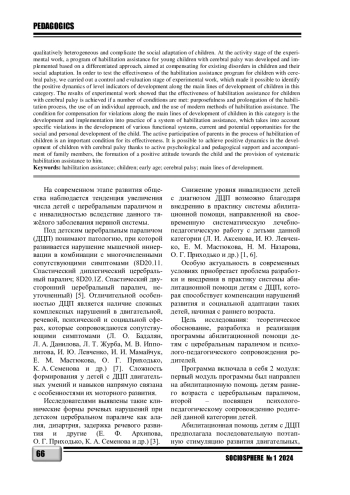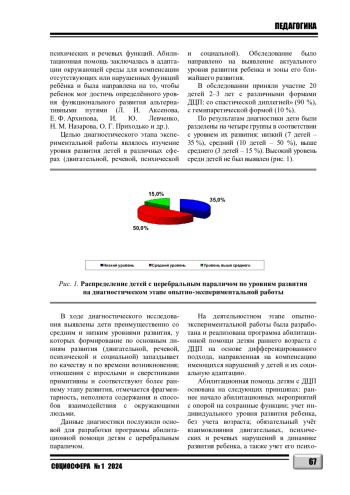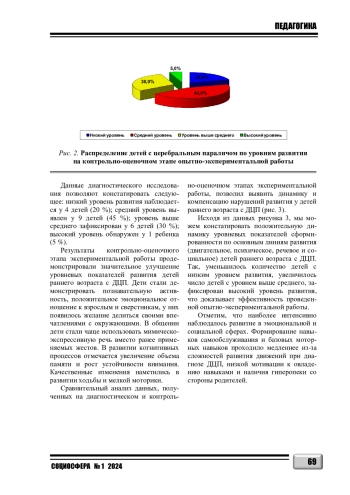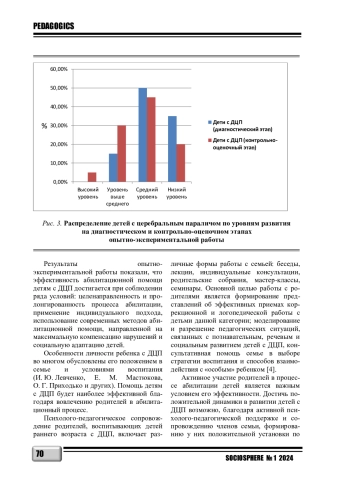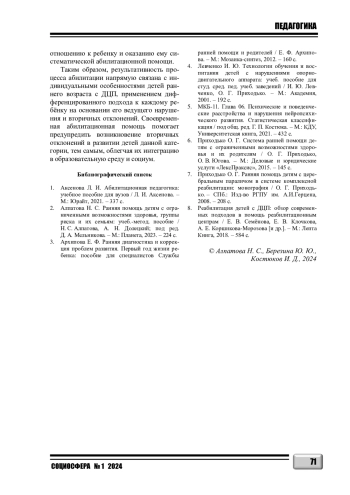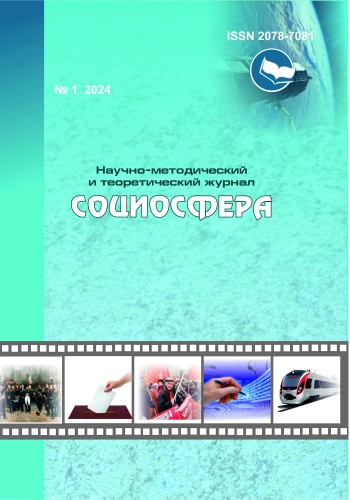В статье рассматривается проблема абилитации детей с церебральным параличом. Детский церебральный паралич - это патология, при которой развивается нарушение мышечной иннервации в сочетании с многочисленными сопутствующими симптомами. Отличительной особенностью детского церебрального паралича является наличие сложного комплекса нарушений в двигательной, речевой, психической и социальной сферах, которые сопровождаются сопутствующими симптомами. Целью исследования было теоретическое обоснование, разработка и внедрение программы абилитационной помощи детям с церебральным параличом. Экспериментальная работа проводилась поэтапно и предполагала последовательную стимуляцию развития двигательных, психических и речевых функций. На этапе диагностики изучался уровень развития детей в речевой, двигательной, когнитивной и социальной сферах. Обследование было направлено на выявление текущего уровня развития ребенка и его зоны ближайшего развития. Нарушения в двигательном, когнитивном, речевом и социальном развитии детей раннего возраста с церебральным параличом представляют собой сложный симптомокомплекс, качественно неоднородны и затрудняют социальную адаптацию детей. На активном этапе экспериментальной работы была разработана и внедрена программа абилитационной помощи детям раннего возраста с церебральным параличом, основанная на дифференцированном подходе, направленном на компенсацию имеющихся нарушений у детей и их социальную адаптацию. С целью проверки эффективности программы абилитационной помощи детям с церебральным параличом мы провели контрольно-оценочный этап экспериментальной работы, который позволил выявить положительную динамику уровневых показателей развития по основным направлениям развития детей данной категории. Результаты экспериментальной работы показали, что эффективность абилитационной помощи детям с церебральным параличом достигается при соблюдении ряда условий. Активное участие родителей в процессе абилитации детей является важным условием его эффективности. Добиться положительной динамики в развитии детей с церебральным параличом можно благодаря активной психолого-педагогической поддержке и сопровождению членов семьи, формированию позитивного отношения к ребенку и оказанию ему систематической абилитационной помощи.
The article discusses the problem of habilitation assistance for children with cerebral palsy. Cerebral palsy is a pathology in which a disorder of muscle innervation develops in combination with numerous associated symptoms. A distinctive feature of cerebral palsy is the presence of complex complex disorders in the motor, speech, mental and social spheres, which are accompanied by associated symptoms. The purpose of the study was to theoretically substantiate, develop and implement a program of habilitation assistance for children with cerebral palsy. The experimental work was carried out in stages and involved consistent stimulation of the development of motor, mental and speech functions. At the diagnostic stage, the level of development of children in speech, motor, cognitive and social spheres was studied. The examination was aimed at identifying the current level of development of the child and his zone of proximal development. Disturbances in the motor, cognitive, speech and social development of young children with cerebral palsy represent a complex symptom complex, are qualitatively heterogeneous and complicate the social adaptation of children. At the activity stage of the experimental work, a program of habilitation assistance for young children with cerebral palsy was developed and implemented based on a differentiated approach, aimed at compensating for existing disorders in children and their social adaptation. In order to test the effectiveness of the habilitation assistance program for children with cerebral palsy, we carried out a control and evaluation stage of experimental work, which made it possible to identify the positive dynamics of level indicators of development along the main lines of development of children in this category. The results of experimental work showed that the effectiveness of habilitation assistance for children with cerebral palsy is achieved if a number of conditions are met: purposefulness and prolongation of the habilitation process, the use of an individual approach, and the use of modern methods of habilitation assistance. The condition for compensation for violations along the main lines of development of children in this category is the development and implementation into practice of a system of habilitation assistance, which takes into account specific violations in the development of various functional systems, current and potential opportunities for the social and personal development of the child. The active participation of parents in the process of habilitation of children is an important condition for its effectiveness. It is possible to achieve positive dynamics in the development of children with cerebral palsy thanks to active psychological and pedagogical support and accompaniment of family members, the formation of a positive attitude towards the child and the provision of systematic habilitation assistance to him.
